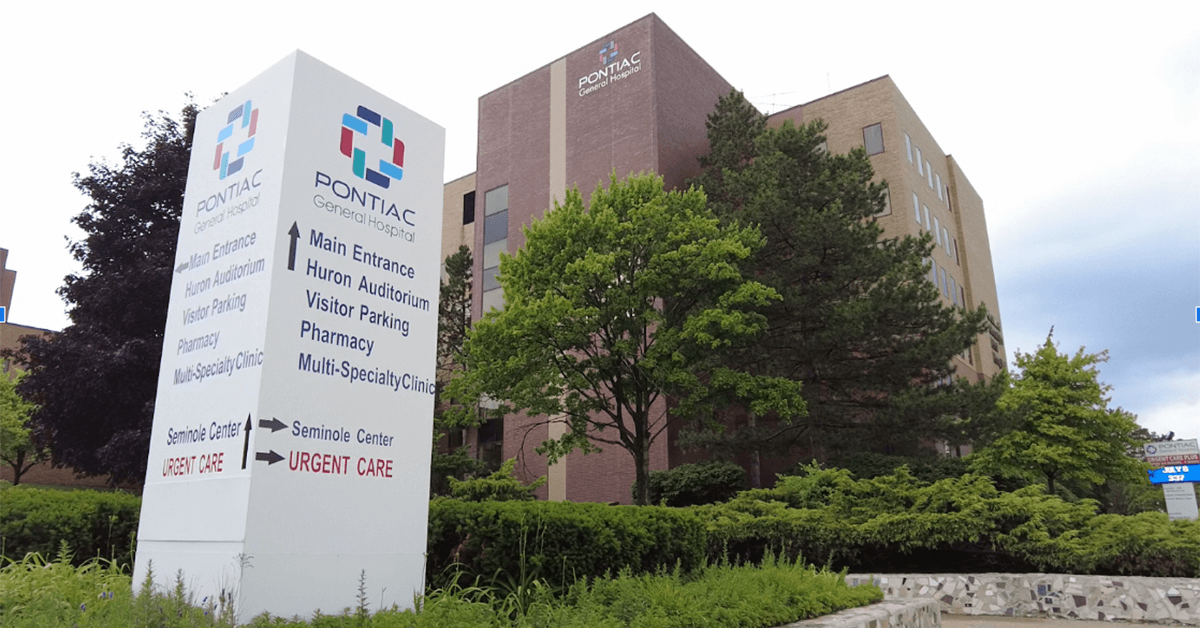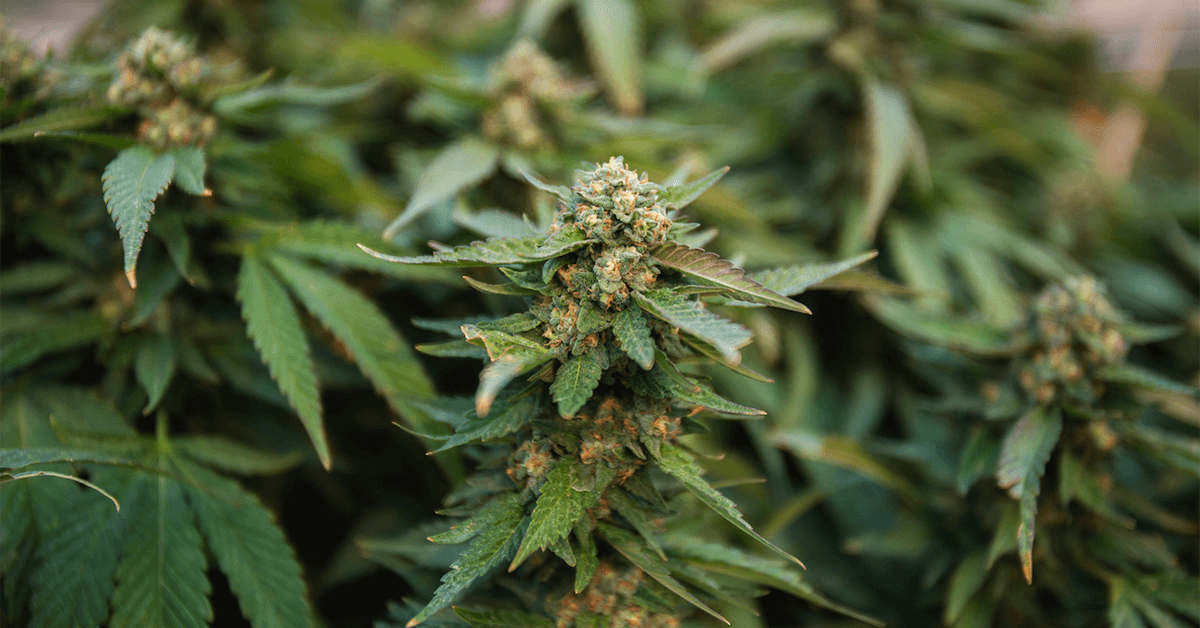Networking and Golf for Cannabis Professionals at the Pin High Golf Outing

The upcoming Pin High Golf Outing, organized by Full Circle Media, offers a unique opportunity for businesses within the cannabis industry to connect, network, and promote their brands in front of a targeted audience of industry professionals. Scheduled for Monday, June 3rd, this event will be held at the Rolling Hills Golf Club in Lapeer, Michigan, from 8 AM to 4 PM.
Date and Time: Monday, June 3rd, 8am - 4pm EDT
Location: Rolling Hills Golf Club, 3274 Davison Road, Lapeer, MI 48446
Event Schedule
- 8:30 AM - 9:45 AM: Golf Check-In
- 9:00 AM: Sponsor Check-In (sponsors are responsible for bringing their own tents, tables, and chairs)
- 10:00 AM: Shotgun Start
Participation Packages
The Pin High Golf Outing offers two main participation packages for companies:
$500 Group Package:
- Entry for four golfers
- Complimentary drink and snack tickets for each golfer
- A bucket of range balls for the team
$2,000 Sponsorship Package:
- 10'x10' tent space in the vendor village to promote the brand
- Hole and golf cart sponsorship
- Company logo prominently displayed on the event banner
- Entry for four golfers, each receiving complimentary drink and snack tickets, and a bucket of range balls
Golf Format and Competitions
The event will feature a Four Man Scramble format, which encourages teamwork and networking among participants. Additionally, there will be competitions for the Closest to the Pin and the Longest Drive, adding an element of excitement and friendly competition to the day.
Important Note
While the Pin High Golf Outing is a fantastic opportunity for brands, dispensaries, legal professionals, and accounting specialists to engage with potential clients and partners, it is important to note that cannabis sales will not be permitted at the event. This ensures a professional and enjoyable atmosphere for all attendees.
Networking Opportunities
This event is designed to provide a relaxed and enjoyable setting for businesses to foster connections and explore potential collaborations within the cannabis industry. Whether you opt for the group package or the sponsorship package, the Pin High Golf Outing promises to be a valuable experience for all participants.

Kalamazoo Cannabis Networking Event: Connect and Collaborate

The Detroit Cannabis Project is hosting an exclusive networking event tailored for cannabis professionals in Kalamazoo. Scheduled for Thursday, June 27th, from 6:00 PM to 8:00 PM, this event will be held at The Foundry Corporate Office and Event Space, located at 600 East Michigan Avenue, Kalamazoo, MI 49007.
As part of the Cannabis Business Courses for Social Equity collection, this event is designed to foster connections, collaborations, and meaningful dialogues within the local cannabis community. Attendees will have the chance to engage with fellow professionals, entrepreneurs, and advocates, sharing insights and exploring new opportunities in the industry.
Event Agenda
6:00 PM - 6:30 PM: Open Dialogue and Networking
The evening begins with an open networking session, providing an opportunity for attendees to mingle and establish new connections. This segment is designed for sharing experiences, exchanging stories, and building relationships that can lead to future collaborations. Food will be provided during this time to enhance the networking experience.
6:30 PM - 6:45 PM: Statement from City Representative
A representative from the city will deliver a special statement, offering valuable insights into local cannabis initiatives. This segment will cover the latest developments, regulations, and opportunities that are shaping the cannabis landscape in Kalamazoo.
6:45 PM - 7:30 PM: Facilitated Discussions
Participants will engage in facilitated discussions on key topics impacting the cannabis industry. These discussions, led by experienced facilitators, will serve as a platform for exchanging perspectives, addressing challenges, and exploring innovative solutions to advance the industry.
7:30 PM - 8:00 PM: Networking, Closing, and Next Steps
The event will conclude with additional networking opportunities, allowing attendees to reflect on the discussions and plan their next steps. This is a chance to connect with potential collaborators, exchange contact information, and discuss future goals and initiatives in the cannabis sector.
Why Attend?
This event is a prime opportunity for cannabis professionals to connect with peers, gain valuable insights, and contribute to the growth of the cannabis industry in Kalamazoo. The structured yet informal environment is ideal for both seasoned professionals and newcomers to the industry.
Mark your calendars for June 27th and join in at The Foundry for an evening of connection, collaboration, and community building. Whether you're looking to expand your network, learn about local cannabis developments, or discuss industry challenges and solutions, this event promises to be a significant and enriching experience.
You can reserve your ticket / RSVP here (free).
Enhance Your Well-Being at the Strong Stoners Social

The Strong Stoners organization is set to host a Mental and Physical Awareness Social on Saturday, May 25th, from 1:00 PM to 4:00 PM at 14010 Woodward Avenue, Highland Park, MI. This event promises to be an enriching experience aimed at enhancing mental and physical well-being through cannabis.
The event will feature an array of activities designed to foster connections, learning, and personal growth among attendees. Participants can look forward to enjoying food and products from prominent cannabis brands such as Hi-Grade Edibles, AntFarm, and RealiTREEZ.
One of the highlights of the event will be a session with Bianca Hopes, a renowned physical trainer from Detroit's Easy Day Boxing Gym. Attendees will have the chance to engage with Hopes and learn new workout routines that promote self-care and fitness.
Additionally, Tamika Reeves, MA LPC, the creator of Locate Therapy, will be present to offer insights into mental health and therapeutic practices. Her expertise will provide valuable guidance on incorporating mental health strategies into daily routines.
The Strong Stoners Social is designed for individuals who use cannabis as part of their relaxation and wellness regimen. The event will include various workshops, activities, and discussions focused on improving overall well-being. Attendees can expect a supportive environment where they can share experiences and strategies for maintaining a healthy lifestyle.
General admission for the event is $15, while those interested in a more involved role can opt for the Sponsor ticket at $125. The sponsor ticket offers additional benefits and recognition at the event.
This social gathering is a unique opportunity for individuals to prioritize their health and happiness in a community setting. Whether you're new to cannabis or a seasoned user, the Strong Stoners Mental and Physical Awareness Social provides a platform for education, connection, and growth.
Event Details:
- Date: Saturday, May 25th, 2024
- Time: 1:00 PM - 4:00 PM EDT
- Location: 14010 Woodward Avenue, Highland Park, MI 48203
- Tickets: Click here to buy.
- General Admission: $15
- Sponsor Ticket: $125
For those looking to improve their well-being and connect with like-minded individuals, this event is not to be missed. Join the Strong Stoners community for an afternoon of learning, growth, and cannabis enjoyment.
Pontiac Students Hospitalized After Consuming Cannabis Edibles in Class

Parents of students at Pontiac's International Technology Academy's middle school are being informed via email about an incident where two children ingested cannabis edibles during school hours.
"The fact that the students felt bold enough to consume these edibles in front of a teacher while in the classroom is alarming," said Michelle Broxton, a parent of a seventh grader.
The incident came to light on Thursday afternoon when teaching staff noticed unusual behavior in three students. District officials confirmed that two of these students had ingested cannabis edibles. Emergency medical services were called, and the two affected students were transported to a nearby hospital. According to district officials, they are now in stable condition.
The Oakland County Sheriff's Office is currently investigating the matter, and administrative hearings are scheduled for the students involved.
This incident is part of a troubling trend of increasing cannabis edibles consumption in schools nationwide. Kimberly Leverette, Ed.D., interim superintendent, addressed this growing issue in a statement to 7 News Detroit on Friday.
"Unfortunately, this is a challenge faced by districts everywhere," Leverette stated. "Superintendents across our region are working tirelessly to find solutions to this significant concern. It's rare for a week to pass without hearing about a similar case in another district."
Leverette emphasized that while the district is continually enhancing security and safety measures, preventing such incidents entirely at the school level is challenging. "This issue extends beyond our school walls and requires broader societal change," she added.
The problem is not isolated to Pontiac. Just two weeks ago, Detroit Superintendent Nikolai Vitti, Ed.D., highlighted a similar increase in his district, with students using vape pens and consuming cannabis edibles. Vitti sent a letter to elected officials, including Governor Gretchen Whitmer and Detroit Mayor Mike Duggan, outlining his concerns and proposals.
"As the Superintendent and School Board of Michigan's largest school district, we feel compelled to address the escalating issue of cannabis edibles and vape pen usage among students," Vitti wrote. "Since the legalization of cannabis, our district has observed a troubling rise in drug-related infractions."
Vitti proposed stringent laws requiring all cannabis edibles to be clearly labeled, not just their packaging. He also suggested that manufacturers should be prohibited from using packaging that mimics non-cannabis candy to prevent confusion. Additionally, Vitti advocated for funding to equip schools with detection systems for vape pens and cannabis, financed by the profits and taxes from cannabis sales.
Michigan Cannabis Sales Rise in April Despite Lower Revenue

Michigan cannabis retailers experienced a 9.3% increase in sales volume in April compared to March, although the revenue generated saw a 3.5% decrease.
In April, Michigan retailers sold a total of 573,206 pounds of cannabis. Of this, 569,620 pounds were purchased by adult-use customers, and 3,586 pounds by medical marijuana patients, generating a total of $278,546,444. Recreational consumers spent $276,685,183, while medical marijuana patients accounted for $1,861,261 of the sales, according to the Michigan Cannabis Regulatory Agency (CRA).
In contrast, March saw the sale of 524,285 pounds of cannabis, with 520,469 pounds sold to recreational users and 3,816 pounds to medical patients. The total revenue for March was $288,843,279, with $286,790,258 from adult-use customers and $2,053,021 from medical marijuana patients, as reported by the CRA.
The decline in revenue despite the increase in sales volume can be attributed to a drop in the average price per ounce. The CRA noted that the average price for an ounce of recreational cannabis fell from $90.70 in March to $86.61 in April. Similarly, the average price for an ounce of medical cannabis decreased from $101.22 in March to $99.74 in April.
Despite the falling retail prices, there remains strong interest in cannabis cultivation. The state continues to receive numerous applications for Class C cultivation licenses, which allow for the cultivation of up to 2,000 cannabis plants. In April, 335 out of 336 new medical marijuana business applications were for Class C grow licenses. Additionally, 30 of the 117 new adult-use business applications were for Class C cultivation permits, according to the CRA.
Nonprofits Invited to Apply for Mecosta County Cannabis Excise Tax Funds

On May 14th, the Mecosta County Board of Commissioners established procedures for local nonprofit organizations to request funding from the state's Cannabis Excise Tax reimbursement.
The board approved an application form and outlined a process for nonprofits to request funding, which is now available on the county's website.
"The Mecosta County Board of Commissioners has directed me to place an application form for their use in allocating some of the Cannabis Excise Tax funds received from the state," stated County Administrator Paul Bullock in a news release. "The application is now posted on our website. The board will accept funding applications until June 14th."
Following the June 14th deadline, the board will review all submitted applications and schedule follow-up interviews with organizations being considered for funding, Bullock added.
In March, Mecosta County was notified of the state Fiscal Year 2023 adult-use recreational cannabis payments, as part of the Michigan Regulation and Taxation of Marijuana Act. The county is set to receive $886,295, approximately $59,000 for each of the 15 licensed retail establishments within its jurisdiction.
Interested organizations can complete an application online at mecostacounty.org/business/bids/sales or print and mail the application to Mecosta County Board of Commissioners, 400 Elm Street, Big Rapids, MI 49307.


 Helpful Links
Helpful Links